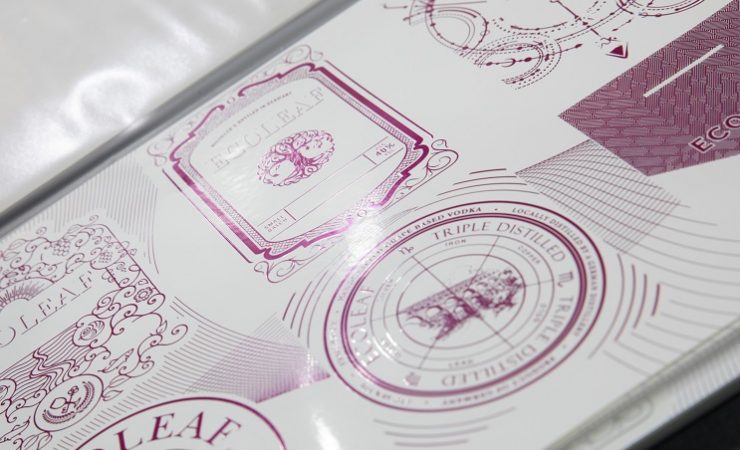Speciality chemical group Altana is planning to invest more into digital printing, as it seeks to set itself on course for growth.
The Altana Group companies are BYK, Eckart, Elantas and Actega. They offer innovative, environmentally compatible options for coating manufacturers, paint and plastics processors, the printing and packaging industries, the cosmetics sector, and the electrical and electronics industry. The product range includes additives, speciality coatings and adhesives, effect pigments, sealants and compounds, impregnating resins and varnishes, and testing and measuring instruments.
In reporting its 2019 financial year results, Altana saw sales across the group dip three percent year-on-year to €2.25 billion. The company cited the main reasons for this as ‘continuing sluggish demand’ in key industrial sectors, especially the automotive industry, and the general economic slowdown, especially in China. At 18.5 percent, the EBITDA margin was roughly at the previous year’s level despite further increases in expenditure, particularly for research and development and digitisation, and thus within the long-term target range of 18-20 percent.
At the same time, Altana Group increased its research and development expenditure by seven percent, and continues to invest above-average amounts in innovations and new technologies. This includes EcoLeaf, a new metallisation technology to shortly be brought to market through Actega Metal Print, a division of group company Actega. EcoLeaf has been developed out of the Landa Metallography technology introduced at drupa 2016, and creates decorative metallic effects with considerably less material, costs, and production time than the processes that have been commonly used thus far, it is claimed. The first beta site has now been confirmed ahead of the technology’s commercialisation in the coming months.
As well as the commercialisation of EcoLeaf through Actega Metal Print, the Actega division has been expanded though the acquisition of Schmid Rhyner, which specialises in print finishing technology and has been involved in the development and commercialisation of the digital embellishment unit (DEU) integrated into the Gallus Labelfire hybrid press platform.
The Altana Group is also on track to achieve carbon neutrality by 2025, which builds on its already achieved target of reducing CO2 emissions by 30 percent in relation to gross value added by 2020. This target was set in 2007 and achieved a decade later. In the current financial year, the company’s entire power supply will be converted to renewable energies.
Altana CEO Martin Babilas said, ‘We invested heavily in promising growth projects in order to remain on course for sustained success. Even in a challenging market environment, we succeeded in achieving our long-term profitability targets. We therefore once again demonstrated our high innovative and financial strength.’
In its planning for the 2020 fiscal year, Altana had assumed there would be slightly stronger global economic growth in the second half of the year. In this environment, the group had expected operating sales growth in the low single-digit percentage range and further growth through the acquisitions already completed. In such a scenario, the EBITDA margin would have been in the lower third of the long-term target range of 18-20 percent. However, the coronavirus pandemic and its impact on demand, production, and supply processes cannot be assessed at present, the company stated. Although Altana achieved slight sales and earnings growth in the first months of the current year, ‘the coronavirus pandemic will have a significant impact on the sales development and earnings situation in the coming months.’
Read the January/February edition of Digital Labels & Packaging for more on EcoLeaf, and here
Read more about finishing and embellishment in the March/April issue of Digital Labels & Packaging; register here to receive the magazine for free


